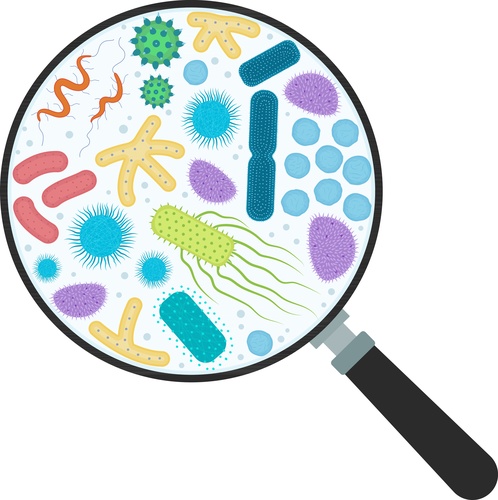
Vælg et område
Check de forskellige Progress in Mind indholdsområder.

Progress in Mind

Interventions to lower the risk for cardiovascular disease and metabolic syndrome, correction of vitamin B12 and folate deficiencies, and targeting the gut microbiota and its associated genes to improve mental health outcomes were discussed at EPA 2019. The future role of psychobiotics and the effects of different antipsychotic medication on gut microbes were also highlighted.
Life expectancy for patients with psychosis is reduced by 10–15%,1 said Professor Peter Falkai, University of Munich, Germany, and metabolic syndrome and cardiovascular disease are the most common causes for this premature mortality.
Serious mental illness lowers life expectancy
Guidelines recommend changing to another antipsychotic medication to counteract substantial weight gain, noted Professor Falkai, but changing may not be easy in practice. Psychosocial interventions, such as weight loss and exercise programs, can lead to weight loss and improved fasting glucose levels; and have been proposed as an alternative.2
A recent large-scale randomized study to evaluate the long-term effect of 12 months of lifestyle coaching of varying intensity in patients with abdominal obesity and schizophrenia spectrum disorders has, however, failed to show benefit on the 10-year cardiovascular disease risk compared with controls.3 The lifestyle coaching included facilitating smoking cessation, enhancing physical activity, improving healthy dietary habits, and monitoring and treating risk factors, such as hypertension, diabetes and dyslipidemia.
Professor Falkai concluded that simply combining behavioral advices to change lifestyle might not be enough to improve long-term outcomes, but highlighted the importance of controlling metabolic risk by treating metabolic syndrome, and checking vitamin B12 and folate levels and treating any deficiency.
Professor Ted Dinan, Department of Psychiatry and APC Microbiome Institute, Cork, Ireland, emphasized the importance of gut microbiota and its diverse DNA for mental health. We have coevolved and feed the microbes, and in return they produce molecules required by our brains and other organs, he explained.
Routes of communication between the gut microbiota and the brain are:
A diverse gut microbiota appears to positively influence mental health
Professor Dinan added that over the past 10 years, it has become clear that gut microbes synthesize tryptophan, the building block of serotonin, and animals fed bifidobacteria have increased blood tryptophan levels.
The crucial role of the gut microbiota in brain development has been demonstrated in germfree animals (animals with no gut microbiota), where the brain and hippocampal stem cells do not develop normally, said Professor Dinan. In addition, some microbes are capable of producing most of the important cerebral neurotransmitters and influence the activity of the enteric nervous system and gut.
Brain and hippocampal stem cells do not develop normally in animals with no gut microbiota
The consistency of the microbiota is determined at birth: babies born by Caesarean section and vaginal delivery acquire different microbiota as a result of their differing immediate exposure to microbes. A healthy diversity of gut microbiota from then on is positively influenced by breastfeeding and fibers in the diet and negatively affected by exposure to antibiotics and unhealthy processed foods.4 As adults, the main determinant of the gut microbiota is diet.
What is the microbiota like in a patient with depression? asked Professor Dinan. The gut microbiota may play a causal role in the development of features of depression, and may provide a tractable target in its treatment and prevention.
Professor Dinan described a study of age and gender-matched controls that demonstrated very different gut microbiota with decreased diversity in subjects with depression. Subsequent fecal microbiota transplantation (FMT) from the depressed subjects into rats was associated with behavior change (anhedonia and anxiety-like behavior) and alterations in tryptophan metabolism and increases in acute phase C-reactive protein in the rats. No change in behavior was observed in rats who underwent FMT from control patients.5
We cannot change the genes in our body, but we can change the genes of our microbiota by altering our diet
We cannot change the genes in our body, but we can change the genes of our microbiota by altering our diet, said Professor Dinan. And the main ways to do this are through live biotherapeutics (previously known as probiotics), prebiotics, FMT and diet.
Psychobiotics are live organisms that produce a health benefit for patients with psychiatric illness when ingested in an adequate amount,6 explained Professor Dinan who described this concept with his colleagues in 2013.
As an example, Bifidobacterium longum has been found to have profound anti-anxiety activity7 and appears to enhance cognitive ability in mice,8 and reduced stress responses and improved memory associated with altered EEG activity in healthy vounteers,9 said Professor Dinan.
Psychobiotics are live organisms that produce a health benefit for patients with psychiatric illness
Some treatment with antipsychotic medication can result in substantial weight gain. It is now known that these antipsychotics change the gut microbiota in animals, resulting in a decrease in bacteriodetes and increased firmicutes, explained Professor Dinan, and this occurs in humans, too.
Furthermore, it has recently been shown that whereas some antipsychotics have antimicrobial activity on the gut microbiota, others increase its diversity and richness,10 he added. Such findings promise to provide new knowledge about the mechanisms of action and the associated adverse effects of different antipsychotics.
Our correspondent’s highlights from the symposium are meant as a fair representation of the scientific content presented. The views and opinions expressed on this page do not necessarily reflect those of Lundbeck.
Related articles
From probiotics to psychobiotics: nutrition, gut and brain https://progress.im/en/content/probiotics-psychobiotics-nutrition-gut-and-brain
New understanding of the gut microbiome may be the key to many diseases and pave the way for new therapies https://progress.im/en/content/new-understanding-gut-microbiome-may-be-key-many-diseases-and-pave-way-new-therapies